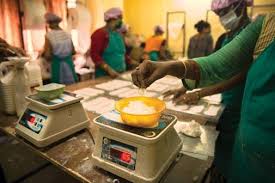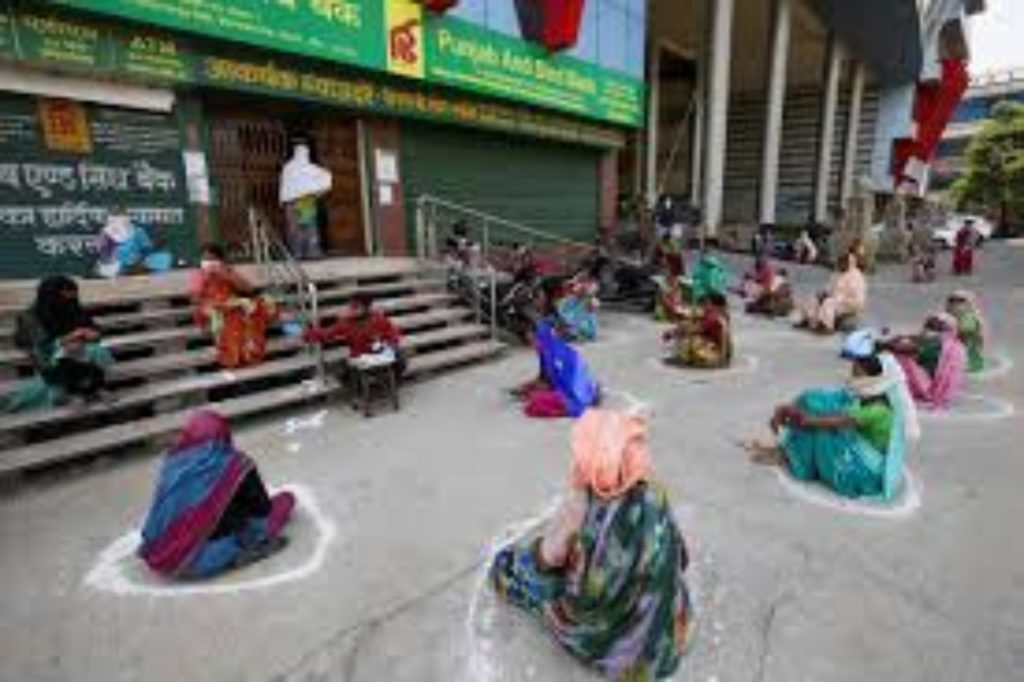Sanitary Napkins Production During Lockdown
By Saumya Khatri
India, like many other countries, resorted to the strict nationwide lockdown in order to combat the spread of the lethal COVID-19 or Coronavirus. The nationwide lockdown meant restriction on movements of goods, services and people until and unless they were ‘essential’.
As soon as the announcement of lockdown aired on national television, people flooded the market in order to stock up basic necessary goods. Stocks of grains, packaged food items, sanitary napkins, vegetables, toilet paper, etc started dwindling from the market but unfortunately, this panic buying didn’t see a trickle down effect. People from economically weaker backgrounds found themselves helpless and unable to purchase even the basic necessities. The producers, on the other hand, struggled too since the production units were shut down or operated with minimal manpower.
The worst hit section was the micro and small scale enterprises operating on less resources, less manpower and limited access to information too. Sanitary Napkins, an essential good with almost inaccessible alternatives, vanished from local markets, found itself absent from the initial ‘essential goods’ list issued by the government and was difficult to produce by the small scale enterprises amidst the lockdown.
Sanitary Pads: Pattern Of Consumption and Production
Sanitary Pads is undeniably an essential product consumed by almost every household of India since it’s alternatives are inaccessible like tampons and menstrual cups or unhygienic like cloth. The two groups which were most hit were the small and micro scale producers of the sanitary napkins and the women belonging to economically weaker sections who couldn’t stock up during the panic buying were forced to opt for unhygienic alternatives such as cloth pieces.
For a country where only 36% of total menstruating women use sanitary pads, the mismanaged lockdown further emboldened the disparities and left a considerable menstruating population vulnerable to several diseases caused by unhygienic menstrual practices. These diseases can be as fatal as cervical cancer, reproductive tract infection, hepatitis B, Urinary Tract Infection and yeast infections.
The production on the other hand faced a blow due to the mismanaged lockdown too. The sanitary products market is dominated by big MNCs like P&G Hygiene and Healthcare Ltd and Johnson & Johnson Ltd. However, in recent years due to several pushes by government subsidies few MSMEs came up in order to diversify the production of sanitary napkins and create a wider outreach at a much affordable price. These enterprises were the worst hit with the sudden lockdown and the ambiguity around the inclusion of sanitary products in the list of ‘essential goods’ made the matter worse for them. The plants were forcefully shut down and production was abruptly halted adversely affecting the target consumers, plant owners and workers. It was only on 30 March 2020, five days into the lockdown that Ms. Smriti Z Irani clarified the matters by posting pictures of several circulars on Twitter.

Sanitary Pad Distribution During Lockdown
When the market ran out of sanitary napkins on the eve of 25 March 2020, Twitter was flooded with complaints regarding the sudden and ambiguous announcement on lockdown. The ill-prepared citizenry was left with no choice. One of the most sought after products was Sanitary napkins. But the worst affected part of the population didn’t have the choice to voice their rage and panic on Twitter. The rural menstruating population which is dependent upon NGOs and MSMEs for sanitary products on a cheap price or for free had to go back to the unsafe, unhygienic and inconvenient alternative- the cloth. Even if the pharmacies were allowed to stay open, they were located far away with only expensive options.
Amidst such a perilous situation, several initiatives were taken up by NGOs and volunteers to facilitate the distribution of sanitary napkins to the rural population, migrants walking on foot and urban poor populations. It is, however, difficult to assess the impact that these volunteer based efforts generated and their viability in the coming times when the COVID impact is going to be severe and the lockdown is going to stretch, although with less strictness.
Several testimonies by young school going girls show how their access to sanitary napkins was entirely dependent upon their school. The distribution through schools was clearly supposed to take a blow but the authorities didn’t care to provide a backup mechanism to facilitate distribution. Few of the testimonies also bring out the fact that the girls were able to receive face masks but not pads, this only brings out our ignorance to menstrual hygiene as a society.

The Coronavirus lockdown imposed by the government could have avoided the impoverished picture of sanitary napkins production and its uneven distribution. The ambiguity and mismanagement by executive bodies clearly widened the class driven abyss when it comes to access to menstrual hygiene products. The heavy dependence on sanitary pads is also something to be pondered about, the limited knowledge on tampons and cups as well as the taboos associated with them needs to be worked upon.
It is surely heartwarming to see volunteer based initiatives and NGos coming forward to help those in need but as mentioned earlier, its viability, outreach and impact is hard to assess. Moreover, this is not an alternative to the state’s responsibility of ensuring proper health and hygiene to every citizen. The government could have partnered with these organizations instead of being totally absent from the picture. It would have at least facilitated the wider outreach and compensated for the hindrances caused by the abrupt lockdown. The five day delay in classifying sanitary napkins as an essential product demonstrates the negligence of the state when it comes to menstrual hygiene and women’s issues in general.
Author

